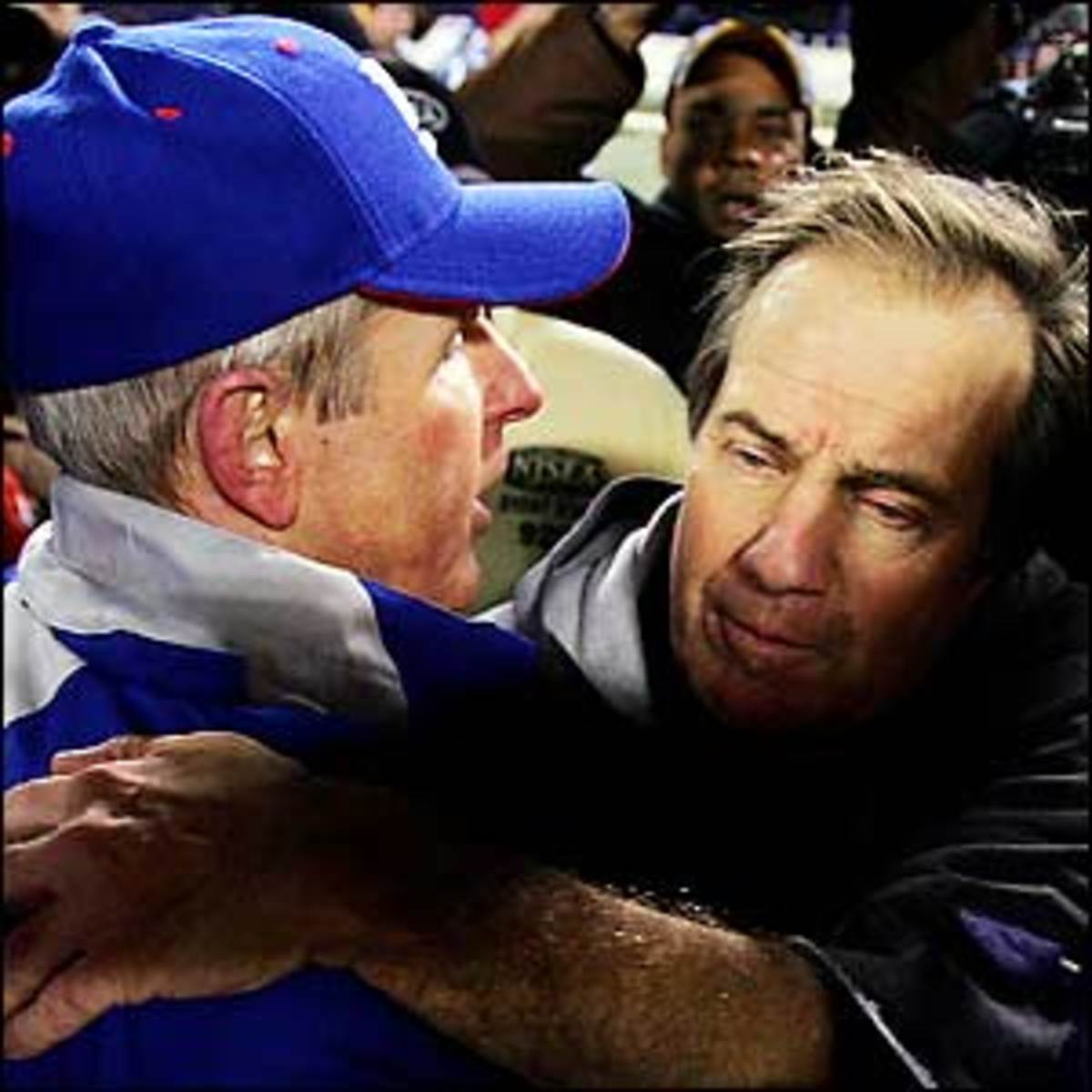Road to redemption
What he heard a year ago was the familiar refrain of a nag -- change or else -- when Giants ownership presented him with a career ultimatum.
How could the dogmatic man, who, as a Jaguars coach years ago, mocked his rehabbing players by referring to them as the "sick, lame and lazy," suddenly loosen the rivets on his jaw line?
Amazing what an epiphany of self-preservation can do.
While Bill Belichick beat a quick and graceless path out of the stadium on Super Bowl Sunday (more on that later), Coughlin looked almost pink with warmth as the coach of the champions, proving there is no better mood lighting than the reflection of a Lombardi Trophy.
"He's pretty set in his ways as an old man," Giants punter Jeff Feagles joked about his 61-year-old coach. "It's hard to change at that age. Give him credit."
By all DNA accounts, football coaches are particularly resistant to flipping personas, living and breathing as system-driven machinists up to their chinstraps in insecurities. A demand for change is often construed as a threat to the code of head coaching.
Coughlin proved a coach can undergo a makeover without losing his schematic center, supplying the NFL with back-to-back Super Bowl acts of kindness in the world of coaching, offering an encore to the Colts Tony Dungy.
Are bullies so '90s? Can what worked for crusty Coughlin work for, say,Belichick, the crustiest of all?
Could Hoodie change? Should Hoodie change? Owner Robert Kraft, for one, seems to accept Belichick -- half Garbo, half grouch -- just the way he is.
"I never sit in judgment of the way others are," Kraft said. "What's more important to me is what people are about at the core. If people were the way I might like them to be, they might not be as good at what they do."
True, Belichick's coaching imagination reveals a level of brilliance that only those with a "Beautiful Mind" can relate to, even though he was outfoxed by the Giants and himself during the Super Bowl.
(His decision to go for it on a fourth-and-13 at the Giants 31 in the third quarter revealed, if nothing else, a personnel decision failure on his part: Belichick had no faith in Steve Gostkowski for a 48-yard field goal attempt, in a dome no less. Paging Adam Vinatieri.)
The alterations Belichick needs to undergo are not related to his coaching style or player relationships. In a very different scenario from Coughlin's, Belichick may be confronted with his own moment of self-preservation should his legacy go under the knife in another round of Spygate inquiries.
To Belichick, verbal brevity is a virtue. He has tersely referred to the investigation around his team's videotaping habits as a league matter when it is, in fact, a situation he may have to further explain publicly at some point.
In the coming days, Sen. Arlen Specter, the top Republican on the Senate Judiciary Committee, intends to question NFL Commissioner Roger Goodell concerning the destruction of tapes provided by the Patriots in September.
Whatever Specter's motives -- like grandstanding for his Comcast constituency -- the issue is back and more bizarre than ever. Goodell's people plan to track down Matt Walsh, New England's former filmographer of the sidelines, and at the very least have a nice, long chat about his former bosses.
What will Walsh say? How much does he know? He may turn out to be an opportunist looking to capitalize on his story, making him less than credible. But if he has evidence of more wrongdoing by the Patriots, if it turns out Spygate was less an aberration and more of a peephole into the Patriot's cheatin' hearts, Belichick will be in an interesting predicament with his legacy on the line.
It doesn't matter if every other team snoops around opponents illegally or if Jets coach Eric Mangini, who first outed Hoodie's camera methods, was once part of the same spy ring in New England. As the dynasty of the moment, the Patriots are accountable to whatever camera corruption exists in the NFL, just as the stars of baseball are scrutinized more than utility players for the steroid era.
Few ever jump to come clean in sports, but those who do usually catch a break in public perception. And coaches can, if pushed, show another side of themselves. Coaches can, if under duress, have an epiphany. Coughlin has shown that.
"Nobody thought he could change," said Giants owner John Mara, adding, "But the changes he made with communication -- particularly forming the leadership council on the team -- was a good signal to the players that he was not a dictatorial person."
Hoodie is the dictator of all dictators in the NFL. He reveals nothing, hides everything. Depending on what turn Spygate takes next, Belichick may have to decide whether he can change his ways. Ultimately, he may face a choice: open up or else.





